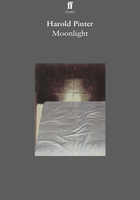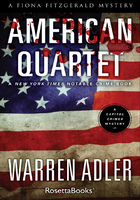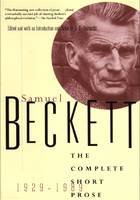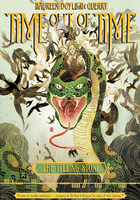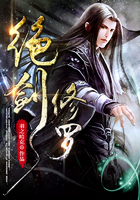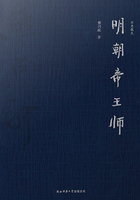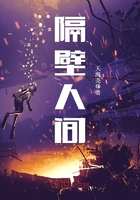INTRODUCTION: A STRANGE AWARD AT LANGLEY
The entrance to CIA headquarters is just off the George Washington Memorial Parkway, about a ten-minute drive up the Potomac from the White House. On a sunny, humid day in June 1993, an air-conditioned bus exited the parkway, onto Dolley Madison Boulevard and slowed down at the turnoff to the Langley headquarters. A bouquet of flowers had been left on the grassy island in the intersection. Each day now someone had taken to leaving a fresh floral arrangement here to mark the spot where three months earlier a young Pakistani with an AK-47 had calmly gunned down two Agency officials and made his escape.
It had never been easy for outsiders to get into the CIA's sprawling wooded compound, not even before the assassinations. The day the innocuous-looking bus pulled up to the security gate was some three years after the Berlin Wall had come down and a year and a half since the Soviet Union had ceased to exist. But although the Cold War was over, the CIA, that forty-six-year-old shrine to anti-Communism, was very much intact, and no one was talking about dismantling it. At the gate the uniformed guards immediately recognized the bus and the driver. It was a CIA vehicle with an Agency employee at the wheel, but the security men wanted to know who the others were.
"I'm Congressman Charlie Wilson, and they're fixing to give me an award in there," the tall figure in a dark blue suit announced as the guards mounted the bus. The congressman's voice is a bit startling at first—"booming" is the only way to describe it, a melodious, large Texas baritone that carries with it a sense of authority and importance. None of the other men or women in the bus looked terribly important. Generally speaking, no one ever looks impressive in a bus. But after listening to the congressman, the guard called the director's office and, without checking so much as a driver's license or searching any of the visitors' briefcases or handbags, waved the vehicle through the gate.
The woods of Langley were particularly lush that morning. It was June 9, 1993, a week after Charlie Wilson's sixtieth birthday, which he had celebrated with a party for three hundred at the Roof Terrace Restaurant of the Kennedy Center. Casablanca was the theme he had chosen for the event. It was his favorite movie, and he had appeared for the occasion in a white dinner jacket specially tailored to look like the one Humphrey Bogart wore when he played the role of Rick. A big band played dance music from the 1940s and '50s, and a characteristically bizarre collection of guests gathered to pay tribute to the rule-breaking congressman from the Bible Belt of East Texas. Six feet, four inches tall, square-jawed, Hollywood handsome, he had taken to the dance floor with one woman after another to relive the memories of his outlandish exploits.
No congressman or senator in anyone's memory had ever succeeded in flouting the rules so repeatedly for so many years and managed to survive. By this time, in the dull era of the 1990s, he had become the ultimate master of the Washington high-wire act, and that night his many strange and unusual friends had stood back and marveled as Charlie danced the night away, offering a toast to "Friends, to power, to passion, to black lace" before exiting with Ziva, a beautiful Israeli ballerina, on his arm.
A week later, riding in the CIA bus to his rendezvous with history, Wilson was preparing himself to rise to the occasion. He looked remarkably fit and useful. There was not a trace of gray in his full head of hair. On this day he actually had the look of a reliable, responsible, sober-minded man.
The others in the bus, mostly Wilson's staff, began gawking out the window the moment they passed the security checkpoint. They were all staring at the sprawling secret compound, trying to lock in a memory of this forbidden zone that their champion was making it possible for them to see and experience.
The well-kept jogging trails were still empty. They would be filling up in another two hours, once the lunch break began. None of this was any longer novel for the Texan, but he still marveled at this center of tranquillity where America plots so much of its espionage abroad. The CIA headquarters building is a somber cement structure that some still call modern even though it was opened just after the Bay of Pigs disaster. The bus slowed down at the entrance, then continued a hundred feet beyond to an oddly shaped, smaller building known to Agency insiders as "the Bubble."
Waiting in front was the new director of Central Intelligence, Jim Woolsey, and next to him, the Near East division chief, Frank Anderson. The congressman was late. He tried to apologize, but Anderson, a man of about fifty who bore a rather strong resemblance to Clark Kent, said, "No sweat."
With that they led Wilson into the Bubble, where close to a hundred people were already seated—men and women conservatively dressed in suits and dresses, uniformly white and middle class. Somehow, all at once, they sensed the arrival of Wilson with the director by his side. Without any apparent signal, these earnest men and women rose to their feet and a hush suddenly overcame the auditorium.
It was a strange sensation for the congressman, who had first come to the attention of this institution eleven years before as a virtual public outlaw—a seemingly corrupt, cocaine-snorting, scandal-prone womanizer who, the CIA was convinced, could only get the Agency into terrible trouble if it permitted him to become involved in any way in its operations. But now the director himself was leading this civilian into the Bubble and everyone was standing in silence, as if a holy man were passing.
The oddness of this moment is hard to exaggerate. America had just won the Cold War, a triumph every bit as significant as the victory over Nazi Germany, yet there had been no V-Day celebrations, no ticker-tape parades, no Douglas MacArthur to publicly celebrate. Life in the capital seemed to roll on as if there never had been a Cold War. At this moment, Charlie Wilson, of all people, was about to be honored as the architect of a great American triumph.
On a large screen on the auditorium's stage was a quotation—all that was necessary to explain why they were all there:
"Charlie Did It"
—President Zia ul-Haq of Pakistan, explaining the
defeat of the Russians in Afghanistan
The director quickly came to the point. "The defeat and breakup of the Soviet empire is one of the great events of world history. There were many heroes in this battle, but to Charlie Wilson must go a special recognition." Woolsey compared Wilson's role to that of Lech Walesa climbing over the fence at Gdansk to launch the Solidarity movement. He described how invincible the Soviets had appeared to be just thirteen years before and how Wilson had engineered one of the lethal body blows that had wrecked the Communist empire. Without him, Woolsey concluded, "History might have been hugely different and sadly different."
Sitting in the third row of the audience, a man in his fifties with thick glasses and a bushy mustache chewed gum manically, as if he were about to explode. Twenty-five years of clandestine service had accustomed him to looking beneath the surface of events. Wheels within wheels moved in his brain as he thought of the incredible irony of this ceremony. He hadn't been back to the Agency for three years, but one thing was certain: the men currently running the CIA weren't about to tip their hat to the role he had played with Wilson in turning a timid, uncertain operation into the biggest, meanest, and far and away most successful CIA campaign in history. The truth was, Gust Avrakotos was the only person in the room who understood how it had all happened, how he had broken the rules to make it happen, and how easy it would have been, if he had let the bureaucrats have their way, for things to have gone very, very differently. The gray man, so used to operating in the shadows, recognized that once again he would have to sit back and let Charlie take the honors for both of them.
The screen with the "Charlie Did It" slide on it was now being lowered into the stage floor as Frank Anderson took command of the proceedings. "To say that this is an unusual moment would be to underplay how unique it really is."
The Near East Division had been Anderson's home ever since he had been recruited out of the University of Illinois and joined the Agency's Clandestine Services. Now he was responsible for all American espionage activities from Morocco to Bangladesh. It was his great good fortune to have been in charge of the South Asia task force in the final years when his men, funneling billions of dollars' worth of weapons to the mujahideen, had chased the Red Army, tail between its legs, out of Afghanistan. Then, promoted to division chief, Anderson had watched the mystical process unfold as the entire Soviet bloc disintegrated, until an exhausted and helpless foe stood vanquished before America's secret warriors.
Anderson explained that he and the CIA were about to do something that had never been done for a civilian nonmember of the Agency. They were about to anoint Charlie Wilson as one of their own. "This moment is about elitism. Within the Clandestine Services we are a self-proclaimed elite unit called the Near East Division. It is an organization whose greatest weakness is hubris. One of the things about elites is that they only care about the approbation of the members of their own elites. So within the division we created an Honored Colleague award, something never before presented to anyone outside the service."
Perhaps no one but the handpicked officers of the Near East Division could fully understand how unusual it was to grant this recognition to an outsider, especially to a member of Congress. Any wariness and hostility that Congress seems to harbor for the CIA is more than reciprocated by the spies who suffer the politicians' scrutiny and endless criticism. But for some reason this man was different. "We really do feel that you are a member of our community," Anderson said with the look of a man who knew he was about to give out the most precious of all gifts. "So if you would, stand with me, Charlie, and be our Honored Colleague."
There were no television cameras present. No newspaper articles the following day would register the event. But curiously, even if the CIA had decided that day that it was appropriate to tell the real story of the CIA's Afghan war and how "Charlie did it," no one there would have been able to explain how it all began.
This book is the story of the biggest and most successful CIA campaign in history. It's the story of how the United States turned the tables on the Soviet Union and did to them in Afghanistan what they had done to the U.S. in Vietnam. The operation certainly contributed to the collapse of the Soviet Union; how critical a role it played is still being debated. But without doubt the Soviet invasion of Afghanistan and the Red Army's defeat at the hands of the CIA-backed Afghan rebels was a world-changing event. And what makes it all the more unusual is that at the heart of this drama is the story of two men, Charlie Wilson and Gust Avrakotos, and what they did in the shadows of the U.S. undergovernment.
This is the story inside the classified story. The version of events that Frank Anderson or the director of Central Intelligence would be capable of telling about the Afghan operation, were they so inclined, would only be a part of the real history. There is a peculiar phenomenon at the CIA that makes it almost impossible for anyone to have a complete picture of a covert operation that unfolds over a number of years.
To begin with, information is shared only on a need-to-know basis. That means that an officer in the European Division would have little, if any, idea what his CIA counterparts in Africa or Asia were doing. The men running the Contra war wouldn't have any way of knowing operational details of what was happening in Afghanistan. To further compromise any individual's field of knowledge, it is the institution's practice to freeze officers out of the information pool once they leave their assignment. That means the station chief who ran the Afghan war in 1981 will know next to nothing about what his successors did in 1984 and 1985.
Finally, there is the very human fact that the most interesting events are rarely put down on paper. Certainly that is the case with the conspiracy that Charlie Wilson and his CIA friend Gust Avrakotos engaged in during the mid-1980s to maneuver the United States into an all-out war against the Red Army in Afghanistan.
The word conspiracy is used with caution here. It means "an agreement to perform together an illegal, treacherous, or evil act." Neither Congressman Wilson nor the CIA's Avrakotos considered their efforts to be evil or treacherous. By their lights they were doing God's work as true patriots: moving a nation to fulfill its proper destiny. As to the illegal aspects, both acknowledge with pride that they joyfully broke the rules with abandon to achieve their daring goals.
The CIA's war in Afghanistan is, of course, a huge historical event featuring many players in prominent roles. But responsibility for transforming the American side of it into what became the biggest CIA operation ever belongs to these two highly flawed and perhaps heroic characters.
It can be said with absolute certainty that no one who knew or met these two men at the time the Soviets invaded and occupied Afghanistan could have imagined the circumstances that would cause anyone to give them responsibility for the most sensitive and highest risk of American covert policies. But no one ever gave them this commission. They seized it and this is the story of how they did it.
It needs to be underscored that this is a true story. It's purely by coincidence that, as in any good spy novel, we happen to come upon the leading man in the beginning of this account surrounded by beautiful women.

